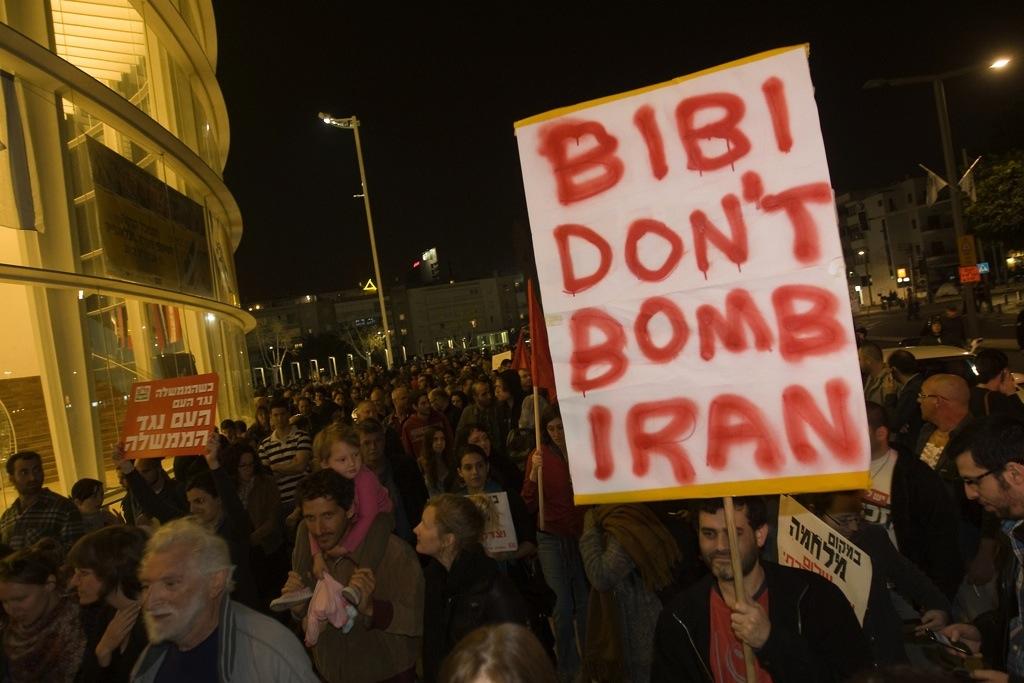Iran and the nuclear double standard
An Israeli anti-war protester holds a sign asking Prime Minister Benjamin Netanyahu not to bomb Iran during a demonstration in Tel Aviv on March 24, 2012.
A spokesman for Iran's foreign ministry on Tuesday said something not all that controversial.
"Some countries say they are concerned that Iran's activities might be diverted towards non-peaceful purposes in the future," he said. "When they are talking about future speculation, how can they not be concerned about scrapping nuclear weapons at the present time?"
The spokesman, Ramin Mehmanparast, of course, was referring to the fact that countries now involved in negotiations with Iran over its suspected nuclear program — the United States, Russia, China, Britain, France and Germany — all have existing nuclear arsenals. So does Israel, Pakistan, the United Kingdom and, lest we forget, North Korea. Belgium, Italy, the Netherlands and Turkey, all have some too, courtesy of the United States.
Much of the world, especially the Muslim world, has a hard time reconciling the fact that the United States owns one of the world's largest stockpiles of nuclear weapons, yet is leading the charge to levy crippling sanctions on Iran because it might be working toward the capability of producing just one.
I remember interviewing a group of students in Indonesia after US President Barack Obama was first elected. They were all studying Islamic philosophy in Jakarta and were by any standard moderate and well-educated.
Together we watched Obama's famous 2009 speech in Cairo, where he spoke of healing the divisions that had erupted between Muslims and the West since Sept. 11. While they appreciated the sentiment of the speech, they remained skeptical. It's just words, they said. They wanted a change in American policy.
The example they all turned to was Iran.
“It’s not fair. Why are Muslim countries prohibited from developing nuclear weapons, while America and Israel have so many?” asked Reno Ramutu, 26. “I mean, it is simple logic that if one country has certain weapons, others will want them as well.”
Say what you will about the government of Iran, it's hard to deny that logic. If the world wants Iran to close its Fordo enrichment plant, the students argued, it needs to offer its own concessions. And the only concession that seemed reasonable to them was a dismantling of nuclear weapons across the board.
Such thinking is usually dismissed as naive. Obama himself once voiced a desire to rid the world of nuclear weapons, but was widely ridiculed. So it is highly unlikely that on May 23, when negotiations resume in Baghdad, US or Israeli concessions will be on the table.
But maybe they should? Shoot me your thoughts: @petergelling
Every day, reporters and producers at The World are hard at work bringing you human-centered news from across the globe. But we can’t do it without you. We need your support to ensure we can continue this work for another year.
Make a gift today, and you’ll help us unlock a matching gift of $67,000!
